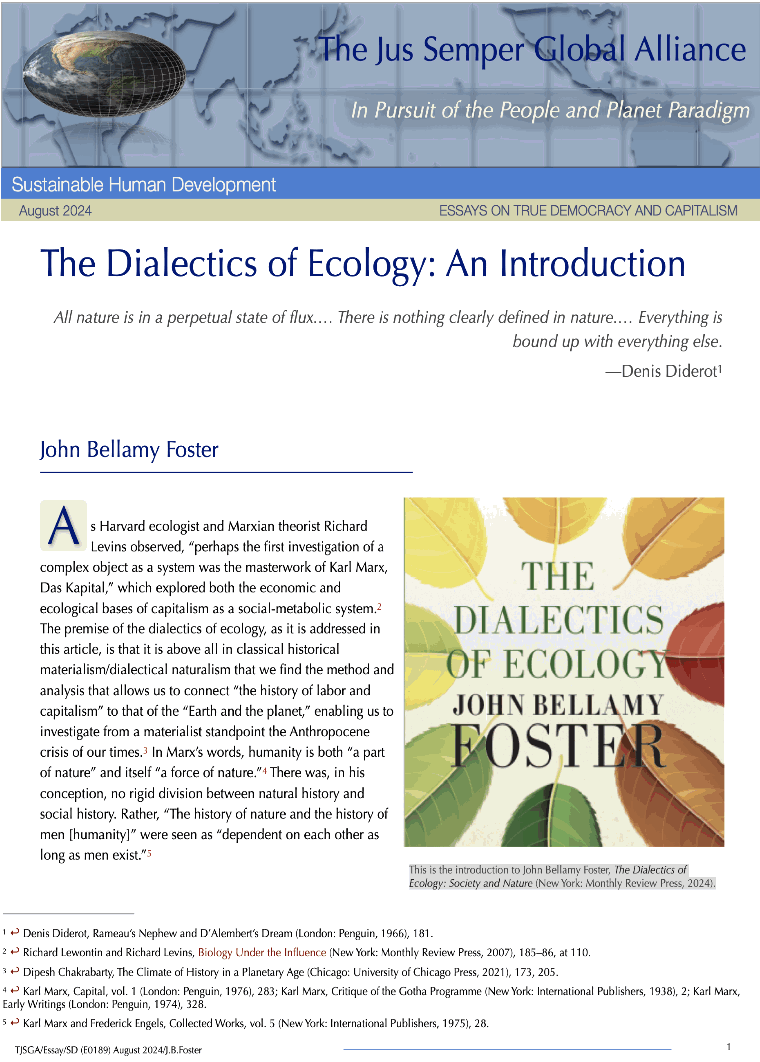All nature is in a perpetual state of flux.… There is nothing clearly defined in nature.… Everything is bound up with everything else. — Denis Diderot John Bellamy Foster In this view, the relation of labor and capitalism to the earth’s metabolism is at the center of the critique of the existing order. “Labour,” Marx wrote, “is, first of all, a process between man and nature, a process by which man, through his own actions, mediates, regulates and controls the metabolism between himself and nature. He confronts the materials of nature as a force of nature.” However, with the advent of “capitalist production,” a systematic disturbance and displacement occurs in “the metabolic interaction between man and the earth,” creating a metabolic rift, or ecological crisis, severing essential natural relations and not only “robbing the worker but…robbing the soil.” Today, this ecological rift in the metabolism of society and nature can be seen as having reached an Earth System level, creating what scientists have called an “anthropogenic rift” in the biogeochemical cycles of the entire planet, resulting in what Frederick Engels referred to metaphorically as the “revenge” of nature. In the classical historical-materialist perspective, this contradiction can only be resolved by reconciling humanity and nature. Such a reconciliation requires overcoming not simply the alienation of nature, but the self-alienation of humanity itself, manifested most fully in today’s destructive, commodified society. What is necessary in such an analysis is recognition from the start of the “corporeal” nature of human existence itself, which is tied to production. Hence, if a “new universal history of the human” is necessary in our time, it is here, within the historical-materialist tradition, that the necessary materialist, dialectical, and ecological method is to be found. For Marx, “Universally developed individuals, whose social relations, as their own communal relations, are hence also subordinated to their own communal control, are no product of nature, but of history.” However, human history is never detached from “the universal metabolism of nature,” of which the social metabolism based in the labor and production process is an emergent part.
For a full read of this brief, click here or on the picture to download the pdf file. |

- © The Jus Semper Global Alliance
| Home |  | Resources |  | Economic Data |  | The Dialectics of Ecology: An Introduction |


